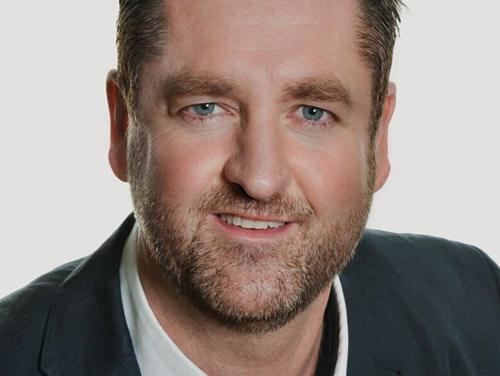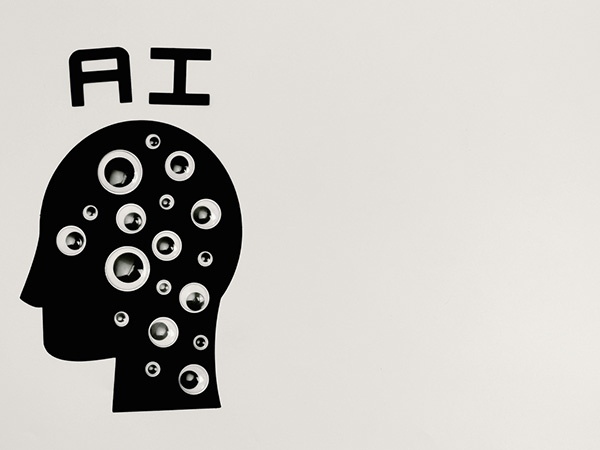News - Everything AI
Rocket Fuel Talks Artificial Intelligence
by ArabAd
July 1, 2015
Seeing as effects of programmatic has a global reach, who has the authority to create a regulatory body to keep watch over these sectors?
International trade associations, such as the Internet Advertising Bureau and International Advertising Association, have created dedicated working groups and task forces to address the global challenges and opportunities of the online advertising industry. All industry players, from brands, media owners, agencies to ad tech firms and interested third parties can participate in this self-regulatory cooperative framework to define industry standards and best practices that adhere to applicable law.
As more and more information is gathered and in turn used to target audiences with advertising the question of ownership of this information is brought to the forefront of the conversation. Who should own this data, should the user whose data is being collected be compensated and who should have the power to decide ownership of the data?
Data collected online about a consumer should be regarded as belonging to that consumer. In fact, protecting the privacy of consumers and empowering them to manage their data is the focus of current advertising industry self-regulatory initiatives and consumer educational campaigns. Providing consumers with transparency, knowledge and choice about how their data is collected and used for online advertising is critical to fostering trust between the industry and consumers.
Regarding the issue of payment to consumers for the data, I think more work needs to be done to educate consumers that it is online advertising that is paying for much of the diverse and rich content and services that they have come to expect for free.
As the use of artificial intelligence becomes more widespread, often without the knowledge of the common user, who faces the consequences when this ai makes a harmful decision. Would this fall into the jurisdiction of a theoretical regulatory body?
Artificial Intelligence (AI) has already infiltrated nearly every aspect of our daily lives and enriched them in many ways. It is contributing to society by diagnosing diseases, providing assistance to the sick and elderly, and developing solutions for environmental problems. While the possibility of malicious AI exists, I believe in the intelligence of humans to understand the possibilities, prepare for the worst and develop safeguards in order to control potential threats.
There are certainly doomsday scenarios that could arise if we cross the bridge to setting AI loose in the world, but as long as AI systems are overseen and controlled by humans we should be fine.
AI will need to be developed responsibly within and alongside human society and liability appropriately allocated between its designers, its operators, and (perhaps eventually) the AI itself.
When we look at the marketing universe today, the role of the CMO has already been revolutionised by AI. There have never been more channels with which a marketer can reach their target market, nor have CMOs had so much data available to them with which they can use to make decisions. There is too much complicated data for humans to manage. Computers are able to analyse the data, recognise patterns, learn from all of this information and act upon what they have learnt – quickly. Within milliseconds, a computer can recognise a behavioural pattern and react, in order to capitalise on opportunities as they happen. The proprietary algorithm from Rocket Fuel can evaluate nearly a million ad impressions every second and make 1.28 billion decisions per day.
Because of these possibilities many are apprehensive to make the shift to artificial intelligence. How do you combat fear of ai that might stem from these potential circumstances?
A pessimistic view of burgeoning new technologies is nothing new. The history of development of communications and computing technology has shown that each new departure is met with fear and criticism.
Currently the main imminent threat from AI is the potential that many of the jobs that require human attention and decision making today may be performed better, faster, cheaper in the future by robots or AI software systems. It is a challenge for us to find a way to adjust the economy in light of this new low-cost pressure on workers and wages.
But if you think about the types of jobs that people have these days, a large number of them didn’t exist a decade or two ago. As jobs become automated, there will concurrently be new jobs created to cope with the new way society is operating. People will be freed from those ‘back-breaking’ and undesirable jobs and instead will be able to undertake roles that allow them to reach their potential.
Most importantly AI will free up human creative potential and create a myriad of new roles and opportunities that we can’t even begin to imagine.
We often see examples of inefficient targeting such as ads for hotel rates during or after a trip or ads for a laptop after a purchase among others. This is hardly efficient use of ad space. Do buyers voice their concerns on this topic and on which side of the chain should this and other examples of inefficient targeting be addressed?
Yes, inefficient targeting when it happens is not only annoying for consumers, it also wastes marketing budgets and undermines the brand’s reputation.
But many tech providers like Rocket Fuel are already able to very precisely target users in the right moment of influence with the right ad.
Site performance data can give insights into anonymous online behavioural patterns of past shoppers, Rocket Fuel’s Moment Scoring technology then analyses consumers' behaviour in order to predict a buying intention and determine which advert should be displayed and use a dynamic creative to display the most effective message.
For example, when an advertising campaign for a city hotel destination is launched, the algorithm anonymously analyses the internet behaviour of existing customers who have already purchased accommodation, via pixels on the advertiser’s website. The algorithm is then able to identify consumers who have shown the same online behaviour in recent weeks as these existing customers. The algorithm predicts whether a consumer is interested in booking a hotel room and will only serve ads to consumers fitting this profile, significantly increasing the relevancy and effectiveness of this advertising and the return on investment for this campaign. Existing customers can be targeted with complimentary offers, like tours or restaurant bookings, based on their online behavioural patterns and interests.










